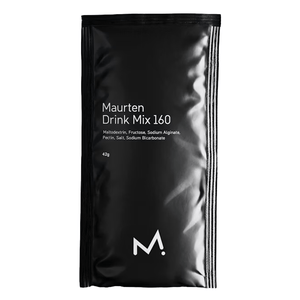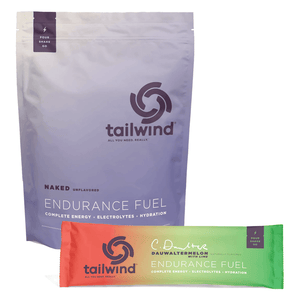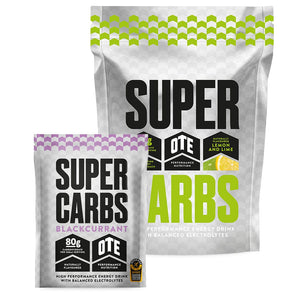It’s your choice - with our knowledge.

Energy Drinks: How & When You Should Use Them
Energy drinks can be a helpful tool for endurance athletes. Back to basics, Energy drinks are specifically formulated powder-based mix, made by mixing powder with water. They are designed to provide a solution to two of the key challenges an athlete faces, typically contain carbohydrates, electrolytes, and other ingredients that are designed to boost energy and alertness during exercise.
Powder-based energy drinks work by providing the body with the nutrients it needs to fuel exercise. Carbohydrates act as the body’s primary energy source during exercise, while electrolytes like sodium, potassium and magnesium are important for maintaining proper hydration and muscle function.
Our Nutrition Calculator can be a useful tool to work out how many Energy Drinks you will need for a workout!
Energy drinks provide a sustained release of energy and keep you hydrated at the same time. Some also contain caffeine if you want to improve your focus. we will touch on this later in the article.
How to use energy drinks?
To mix a powder-based energy drink, simply add one sachet \ serving to water and mix \ shake until dissolved. Some energy drink mixes such as Maurten Drink Mix 160 and Drink Mix 360 need to be mixed with exactly 500 ml of water. Other brands also come in multi-serving pouches and you can adjust the amount of water and powder you use depending on your individual needs.
Some people like to combine their energy drink with other fuel sources like energy gels and energy chews, using a variety of fuel is the best way to avoid flavour fatigue. Using an energy drink as your base fuel is a great strategy for longer events over 3 hours, where you would look to take on 20-40 g of carbohydrate per hour from your base fuel and top up with alternative energy sources.
Combining energy drinks with energy gels and other more solid forms of fuel also limits the amount of liquid you take in and can help avoid feeling bloated or full.
When to use energy drinks?
Powder-based energy drinks can be used to improve performance and alertness during endurance workouts and races. If you’re only exercising for up to an hour, then water or a electrolyte hydration tablet drink is sufficient. You will still of course be losing glycogen and if you go for just water also electrolytes, however because you’re not continuing to exercise at a sustained effort for a longer period you don’t need to refuel during your activity.
Instead, refuelling with a recovery drink or by eating a meal will be enough to aid your recovery.
For exercise over an hour in length, you will want to be fuelling from the start to ensure a balanced carbohydrate load during activity.
Pre-loading, taking an energy drink before you start ensures you’re properly hydrated from the beginning and gives your body time to metabolize the carbohydrates you’re taking in to be used later, before you start to crash. Ideally finish drinking the mix 1 hours before your activity.
Timing:You ideally want to consume 40-80 grams of carbs per hour, this can be in the form of your energy drink, energy gels, energy bars or energy chews, so how often you are taking your energy drink depends on the carbohydrate content and the rest of your fuelling strategy.
For an example using Tailwind Endurance Fuel: 1 single serving mixed with 500ml of water contains 50g of carbohydrate. Where OTE Super Carbs mixed with 500ml of water contains 80g of carbohydrate. So 500 ml every hour would give you the required carbohydrate intake, or you could drink half 250 ml of the energy drink, giving you 25g / 40g of carbohydrate, and then combine with a energy gel with a carbohydrate content of 20-30g. This way you can limit your liquid intake to avoid bloating or in colder weather but still get your ideal hourly carbohydrate intake.
Is caffeine important?
Typically, no. Caffeine won’t enhance your physical performance and can often have more of a dehydrating effect and for some people causes stomach upset, especially if you don't have caffeine in your normal diet.
Caffeine is a mental stimulant which can improve your focus and alertness but ultimately doesn’t provide any more physical energy, so it isn’t always necessary to have a caffeinated energy drink.
However, there are also benefits of caffeine and we deep dive into this topic in our article the How Caffeine Improves Sports Performance.
It’s your choice - with our knowledge.

















































































































